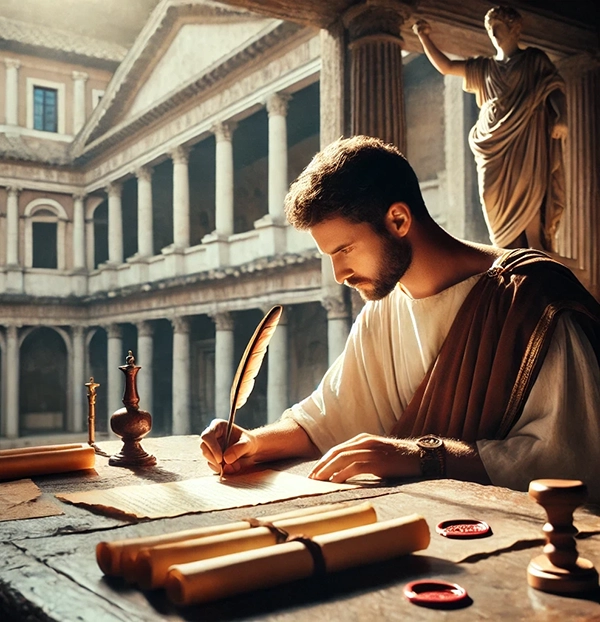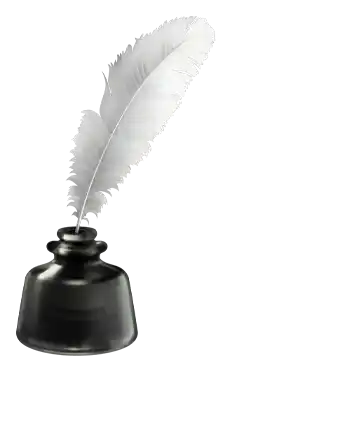Celebrating the Keepers of the Seal and the Guardians of Our “John Hancocks”
Each November, we gather in (perhaps not-so-reverent) celebration of the notary public—the unsung hero of paperwork, the gatekeeper of the official stamp, and the protector of the phrase, "Sign here, please." Whether it's to authenticate wills, certify powers of attorney, or help the occasionally clueless among us make documents “official,” notaries stand as cornerstones of order in a world teetering on the edge of chaos (at least in terms of paperwork).
A Brief History of Notary Public Day
Notary Public Day was first recognized on November 7, 1975, by the American Society of Notaries to honor the contributions and longstanding tradition of the notary public. The date was chosen specifically to commemorate the appointment of the very first notary public in the United States by the Commonwealth of Massachusetts in 1639. This date set the stage for notaries to become an integral part of the legal landscape in the colonies and, eventually, the nation.
But the role of a notary stretches much further back. The concept of the notary public dates to ancient Rome, where notaries, then called scribae, were entrusted with keeping public records, transcribing important documents, and witnessing transactions—tasks that established them as critical players in public and private life. Back in those days, a notary wasn’t just a witness to signatures; they were akin to ancient legal secretaries, carefully documenting and managing records for individuals, businesses, and government officials.
As Roman influence spread, the notary role was adopted by other civilizations throughout Europe and the Middle East. By the Middle Ages, the practice of public notarization had taken root in many parts of Europe, becoming especially popular in England and Spain, where notaries became essential to the certification of property transfers, contracts, wills, and other important agreements. The reputation of the notary as a trusted witness meant their responsibilities only grew more essential with time.
 When European settlers arrived in North America, they brought with them their notarial customs and practices, ensuring that transactions and agreements could be witnessed and validated in a new, developing legal system. The practice was standardized in the colonies, and notaries became recognized officials, with their powers regulated by colonial governments and, later, state and national laws. Over centuries, the role evolved, but the principles remained the same: provide a reliable, impartial witness to important declarations and agreements.
When European settlers arrived in North America, they brought with them their notarial customs and practices, ensuring that transactions and agreements could be witnessed and validated in a new, developing legal system. The practice was standardized in the colonies, and notaries became recognized officials, with their powers regulated by colonial governments and, later, state and national laws. Over centuries, the role evolved, but the principles remained the same: provide a reliable, impartial witness to important declarations and agreements.
Since the establishment of Notary Public Day in 1975, it has served as an opportunity to reflect on the role’s deep historical roots and its importance in modern legal processes. Today, notaries continue to carry forward this ancient tradition, safeguarding the integrity of transactions, from the smallest affidavits to monumental contracts.
What Exactly Does a Notary Do?
For the uninitiated, the work of a notary might look like a whole lot of asking for identification, peering at signatures, and dramatically applying stamps. But a closer look reveals that notaries have serious responsibilities. They are there to confirm identities, serve as impartial witnesses, and ensure that signers are actually who they say they are (and that no one’s being held under duress). The notary’s presence helps prevent fraud and, in many cases, keeps things legally tidy.
Notaries often handle everything from contracts and affidavits to marriage certificates and adoption papers. Imagine being responsible for all that legality! No wonder notaries keep a steady supply of ink for their stamps and eyes sharp enough to catch every pen stroke.
The Lighter Side of the Seal
It’s true—though notaries deal with some pretty serious stuff, they can’t help but encounter moments of absurdity and a little bit of humor. Let’s look at some classic "Notary Chronicles":
-
The Serial Initialer: Ever seen someone initial every corner of every page in a document just to be safe? Some people think that’s how it works, and they do it with vigor. Notaries get to smile through the extra rounds of "J.Q.B.," "J.Q.B.," "J.Q.B." on every single sheet.
-
The I-Lost-My-ID Panic: One would think people would come prepared, but it's common for signers to show up without proper identification. The conversations that follow are sometimes worthy of sitcoms, often involving frantic calls to family members, wild searches through bags, and even last-minute dashes to the DMV.
-
The Signature Evolution: When people start signing, they can go from confident scribbles to illegible scrawls by the end of a document stack. Some notaries will tell you they have to double-check to make sure the first and last signatures are by the same person.
-
Over-the-Top Signatures: Ever met someone who insists on signing with a flourish that would make 18th-century aristocrats proud? While there's no requirement to make a signature dramatic, some signers just can’t help themselves, taking up half the line and leaving notaries chuckling (on the inside, of course).
Fun Facts About Notaries
To add a little spice to the stamp-and-seal life, here are a few tidbits about the notary profession:
- The “Seal of Approval” - Did you know that in some states, a notary’s stamp has to be exactly a certain size? Not just any size or shape will do—it’s all very official.
- Celebrity Notaries - Some famous faces have held the humble position of notary. President Calvin Coolidge was a notary public, and in more modern times, rapper Snoop Dogg once revealed he’s a certified notary!
- Jurisdictional Gymnastics - Notaries in the U.S. can only notarize documents within their own state, with a few exceptions. That means if you run into your notary on vacation, don’t expect any stamps!
How to Show Appreciation on Notary Public Day
How does one celebrate Notary Public Day? Well, aside from applauding every time they say, "Raise your right hand," you can start by recognizing the work they do to keep documents accurate and legally sound. Here are some ways to honor a notary you know:
-
Thank You Cards - For those of us who’ve had to sign document after document in front of a notary, why not send them a thank-you card? Something humorous, perhaps with a big "APPROVED" stamped on the front.
-
Notary Supplies - Consider gifting them something practical, like a new notary journal or an ink pad. These items are essentials, and they might just be touched that you thought of their daily needs.
-
Spread the Word - Most people don’t realize just how important notaries are until they need one. Post a shout-out to your favorite notary on social media, giving credit for the unsung heroism in their stamp-wielding work.
-
Celebrate Like a Roman - Notaries have been around since ancient Rome, so maybe it’s time to celebrate in the spirit of toga parties and feasts (metaphorically, of course). Grab a few friends, make a batch of Roman-inspired appetizers, and toast to the ancient origins of the notary’s duties.
On this Notary Public Day, let’s take a moment to recognize the hard work of notaries everywhere. They’re the silent keepers of lawful integrity, bearing witness to countless signatures and declarations, often without fanfare. So, whether they’re stamping away in a law office, library, or corner of a bank, remember to give a little cheer for the notaries in your life. After all, without them, our signatures might just float off into the void of unenforceable promises!
Please Share our Content






 When European settlers arrived in North America, they brought with them their notarial customs and practices, ensuring that transactions and agreements could be witnessed and validated in a new, developing legal system. The practice was standardized in the colonies, and notaries became recognized officials, with their powers regulated by colonial governments and, later, state and national laws. Over centuries, the role evolved, but the principles remained the same: provide a reliable, impartial witness to important declarations and agreements.
When European settlers arrived in North America, they brought with them their notarial customs and practices, ensuring that transactions and agreements could be witnessed and validated in a new, developing legal system. The practice was standardized in the colonies, and notaries became recognized officials, with their powers regulated by colonial governments and, later, state and national laws. Over centuries, the role evolved, but the principles remained the same: provide a reliable, impartial witness to important declarations and agreements.








 "Sláinte!" is a traditional Irish expression used as a toast, equivalent to "Cheers!" in English.
"Sláinte!" is a traditional Irish expression used as a toast, equivalent to "Cheers!" in English.